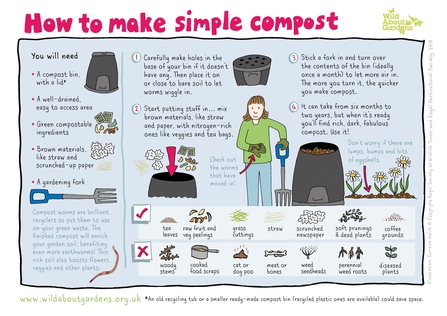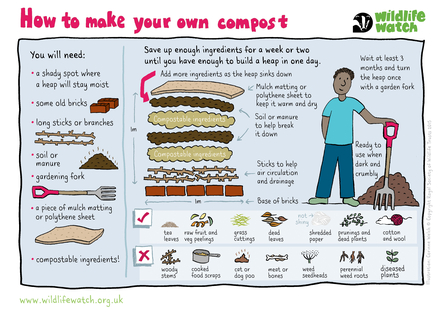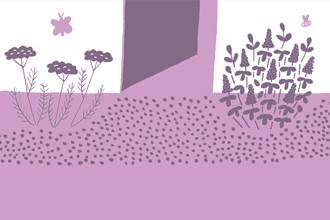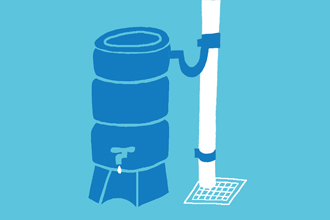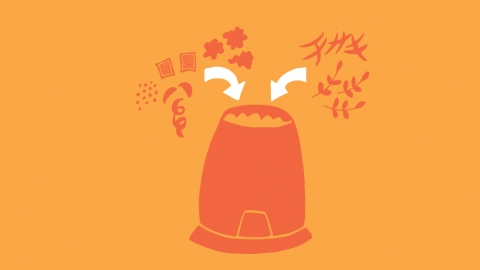
How to compost your waste
The benefits of composting your garden and kitchen waste are two-fold. You’re reducing the amount of waste sent to landfill and providing a habitat for a range of minibeasts. The community of minibeasts who live among the waste help the decaying process, and in turn, these beasts are a delicious food source for hedgehogs and other animals.
All you need for a successful compost heap is waste, air and water!
In addition to saving you money, using your own compost will increase the organic content in your soil. Think of your home-made compost as a soil improver – meaning you should mix it well with your existing soil or bought compost. This will boost fertility and help plants to build up resistance to disease and insect attack, thus reducing the need to use chemical controls. Using your compost will also improve the structure and health of your soil, increasing its water retention and nutrient content. Healthy soil feeds the micro organisms that are responsible for digesting the organic matter in the first place, as well as keeping the worms happy!
How to get started
All you need for a successful compost heap is waste, air and water! A simple heap covered with old carpet or plastic is just as effective as a 'bin'. The only advantage of a container is they look tidier and can be easier to manage. Try to pick a shady spot to keep things moist, and water any dry ingredients you may be adding.
What to put in your compost:
- Grass cuttings and dead leaves.
- Fruit and vegetable scraps and peel.
- Plain cardboard (not the glossy cereal box kind).
- Old cut flowers and bedding plants.
- Prunings and dead plants.
- Coffee grounds.
- Tea bags (check your teabags don't contain plastic first!).
- Pet droppings from any healthy veg-eating pets, including gerbils, rabbits, hamsters and birds, along with any bedding made from natural material or newspaper.
- Eggshells – these help to keep the heap from smelling.
- Newspapers – shredded paper can help to soak up excess moisture in a heap.
Top tips for composting:
- Ensure you have a good mix of items. If you have large amounts of compostable items to dispose of, such as hedge trimmings or bags of cut grass, it is worth using your garden waste bin (if you have one) or contacting your council to see if they have a municipal composting scheme.
- Composting works best if you add a fair quantity of material at a time, so it is best to save up your kitchen scraps and add them to the heap along with some prunings or old bedding plants.
- It is important to mix the contents of the heap every now and again to aerate it – wait at least three months to turn the heap with a gardening fork.
- Your compost is ready to use when it becomes dark and crumbly.
Do not compost:
Cooked food, coal and coke ash, meat and fish, bones, cat litter, dog poo, disposable nappies or human poo, glossy paper, weeds, woody stems, or diseased plants.
Remember! Be careful when you turn or fork your compost, especially in winter, as there may be animals hiding or hibernating in there – everything from smooth newts to hedgehogs!
